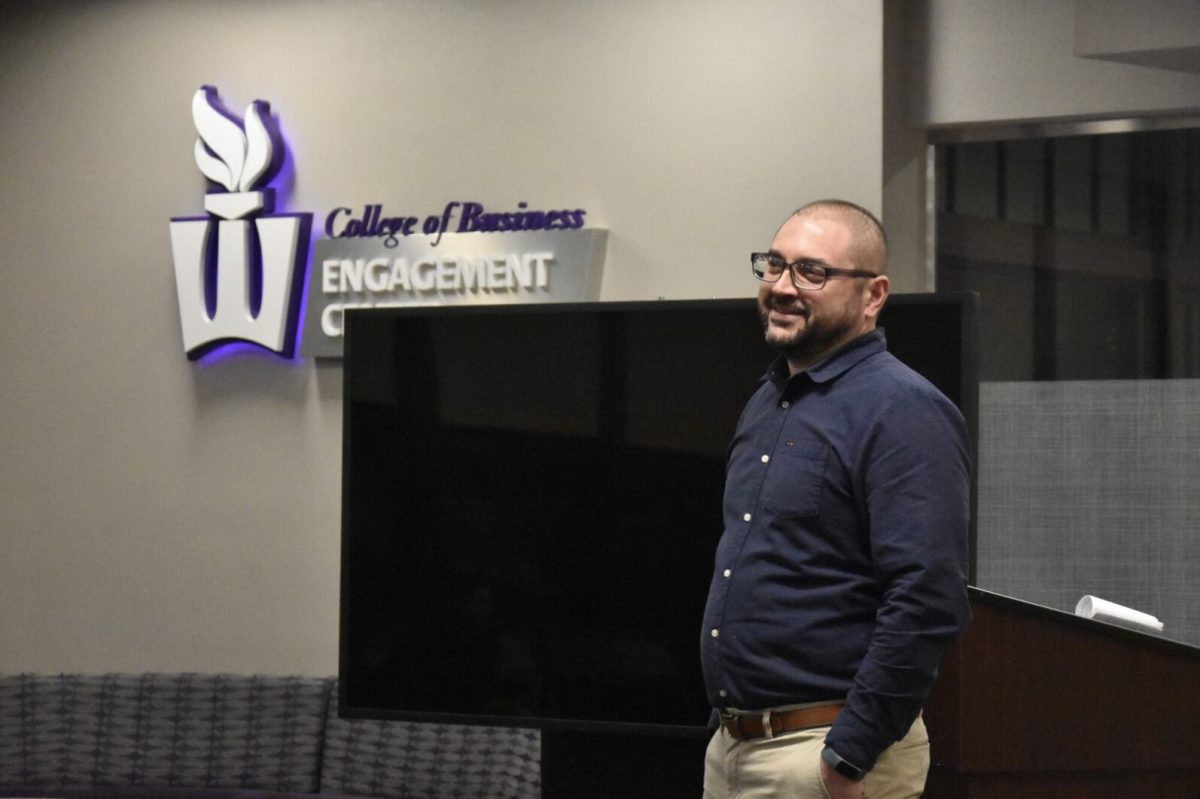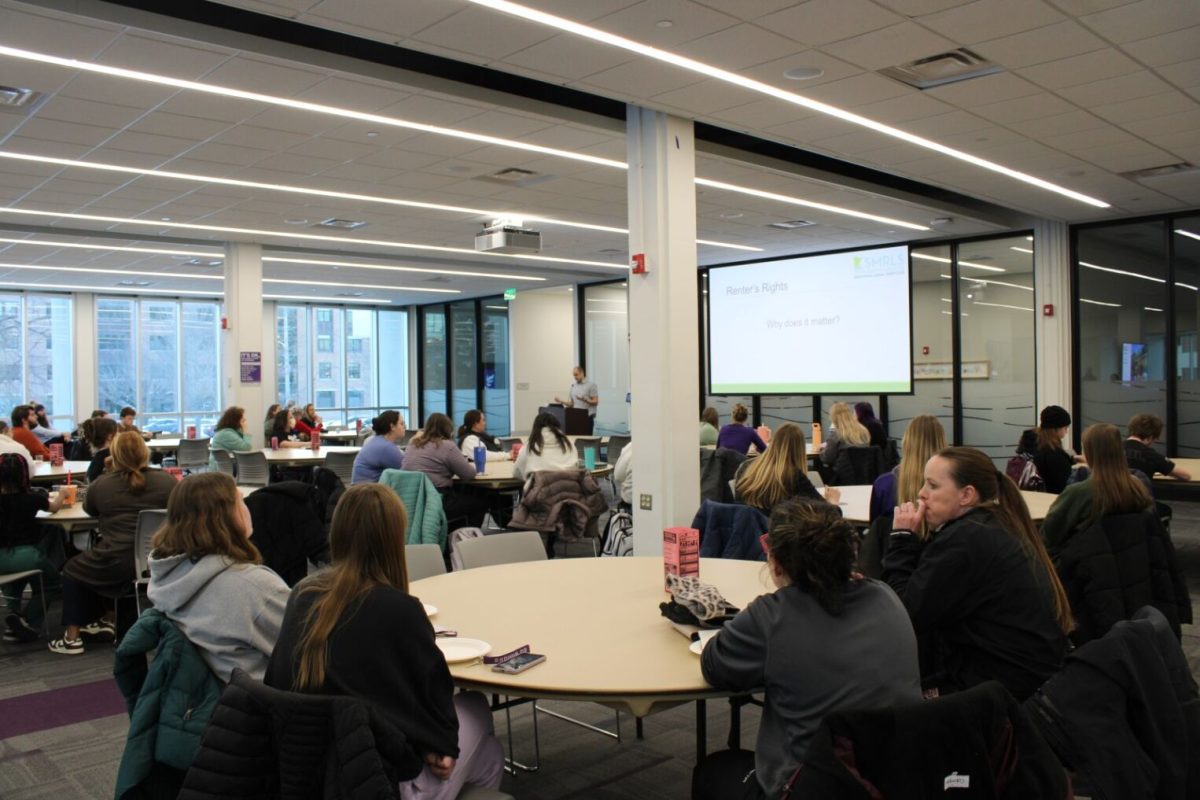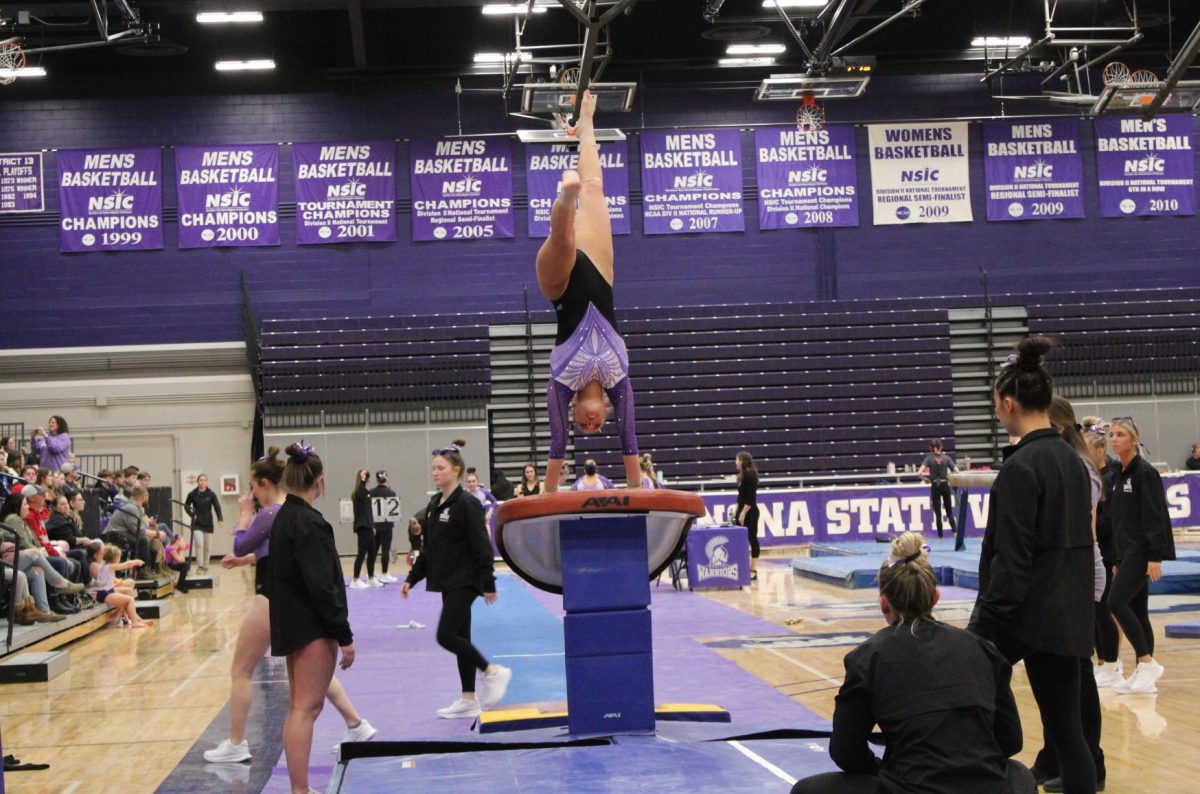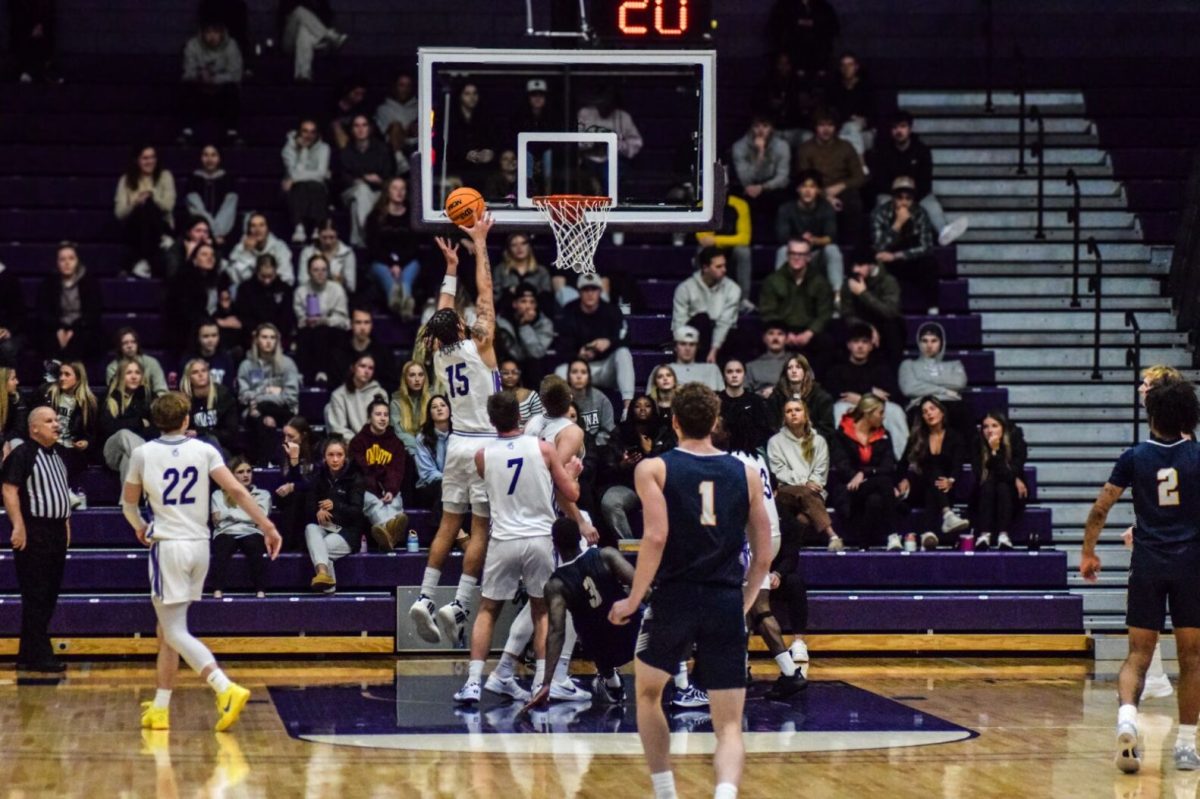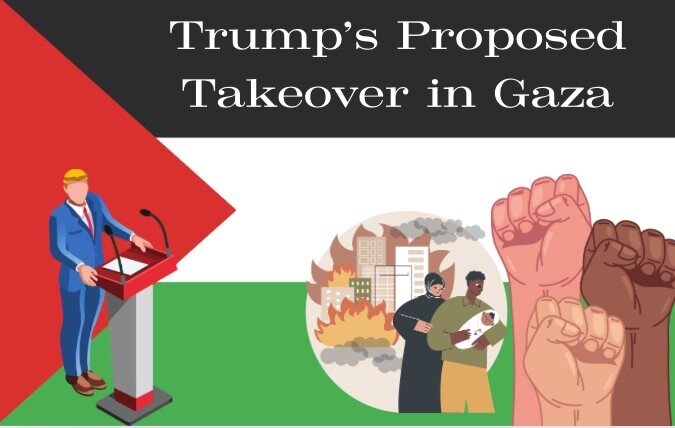Victoria McKenzie/ Winonan
Imagine you’re walking along the street of Minneapolis with your friends, having some laughs and minding your own business. Suddenly, groups of people throw drinks in your face and start attacking you. You defend yourself, but when the police show up to stop the fight, you, the victim, is the one immediately assumed to be the cause of the incidence.
CeCe McDonald told this exact story of her attack in 2010 on Tuesday, March 17 in the Harriet Johnson Auditorium of Somsen Hall of Winona State University.
Still donning the scar from when one of the attackers cut her salivary gland, she said she believed the police assumed her and her group of friends to be the troublemakers since they were African American and the others were Caucasian.
She was immediately cuffed and brought in for questioning before receiving much needed medical care. McDonald agreed to a plea deal of second-degree manslaughter and did not get released from prison until January 2014.
As a transgender black woman, McDonald said she struggled all of her life with people labeling her and making assumptions about her. Once in prison, she found many other transgender women in her same position.
While still incarcerated, McDonald began an advocacy-training program with others to help transgender women in prison.
McDonald said she aims to “break down barriers and build a more unified front.”
McDonald listed barriers, such as sexuality, race and religion, that keep people from seeing others as who they are and standing up for the rights of others. She discussed the dangers transgender women face each day just walking the streets.
She also discussed the importance of better protection and equality for women at large, regardless of their sexualities.
McDonald said labels help society divide and conquer and keep control of others.
“[There is a] lack of acknowledgement of racism in the LGBTQ community,” McDonald said.
People need to discuss the barriers that exist, McDonald said, even within smaller communities that stop progress in creating equality.
“We have to think about what it really means to make change happen. We have to actually do something,” McDonald said.
McDonald said she hopes to change the way people see each other, so people can see each other as human beings and not the labels that society puts on individuals and groups of people.



